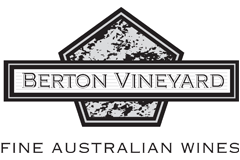 Sustainability
Sustainability
Winemaking
Within the winemaking process we have sought to make many changes to make our practices more sustainable. The use of ion exchange technology to help in the cold stabilising process of our non-premium wines. The ion exchange has a two-fold benefit, it reduces the amount of costly tartaric acid requires to pH correct our wines early in the winemaking process, and second, there are enormous savings on power by eliminating the need for cold stabilizing our lower grade wines which make up 60% of all our wines. Cold stabilising requires us to run huge costly electric motors turning compressors to generate the refrigeration capacity to chill wines down to -4 degrees C. Chilling our more premium wines at night and investment into more insulated tanks has also reduced our energy requirements in this area, as has fermentining our wines at slightly higher temeratures.
We have recently invested in a high solids centrifuge to reduce Diatomaceous Earth use within the winery over the next few years – this will decrease our water usage and also our waste output. Our grape by products such as marc and stalks are sent away for recycling and turned into tartaric acid and alcohol which is then re-used back in the winemaking process.
Packaging
Berton Vineyards commits to eliminating weight from materials in packaging design; reducing the size, weight or thickness of packaging; and optimising void space within the pallet configuration.
The use of the light weight “lean and green” bottles is a source reduction and has been a simple strategy to reduce the environmental impacts of packaging throughout its life cycle. The use of the narrow neck bottle with the blow and press method has resulted in a bottle up to 29% lighter than their predecessors – more than 55% of our glass (8.5M bottles) is now filled in the light weight bottle.
Our preference is not to use dividers within the carton and as such we have eliminated there use across the majority of our domestic sales production. This has also seen us reduce the size of the cartons used, where possible we use thinner cartons such as E-flute rather than the heavier and thicker F-flute, and our major cardboard supplier uses recycled materials and operates within the rules of the Forest Stewardship Council.
We endeavour to use renewable materials such as paper, cardboard and biopolymers and therefore reduce demand for non- renewable virgin materials. Using recyclable materials provides the option the package will be recovered and recycled at the end of its life, also reducing demand for non-renewable virgin materials. We are committed to recycling all our paper, cardboard and plastic.
Energy
Where possible we strive to reduce our energy use and are continually assessing our usage to see where we can make improvements. Thankfully the majority of our activity is on the Yenda site, through this we are able to command best practice and monitor our usage. The company has made significant improvements in energy usage with the implementation of energy reducing processes and techniques, along with capital investment with the sole purpose of reducing energy consumption. Since 2011 we have reduced our energy usage by 43% (2019).
We also ensure the packing onto pallets for product distribution is maximising the transport efficiencies – cartons are packed as high as possible and also to the edges of each pallet to give better transport efficiencies and reduce our need for further fuels and ensures cost savings.
Water
The company is extremely water conscious, especially, given our need to transport waste water off site. Waste water is effectively used to spread over dry area farming land and soon it will be fully utilised for turf farming. As our waste water is transported to dry land farming, we have ensured that we do not use any hazardous or toxic chemicals within the winery. An example of this is our move from Sodium based cleaning products to potassium based, the potassium is readily available for plant uptake, unlike sodium which remains in the soil and can increase salinity.
Land
Through communication with our growers thoughout Australia, and also within our own vineyards, we take the approach of ‘less is more’ with minimal intervention practices in order to minimise our impact on the environment and maximise efficiencies and cost savings.
Some growers mulch to reduce fertilizer requirements, most reduce their spray regime (for sustainability and also for cost reduction), and some have in some years not used insecticides to control certain pests by aiding or not killing the predator. All have reduced their water usage, even those that haven’t converted to drip.
Sustainable Winegrowers Australia Membership certificate
